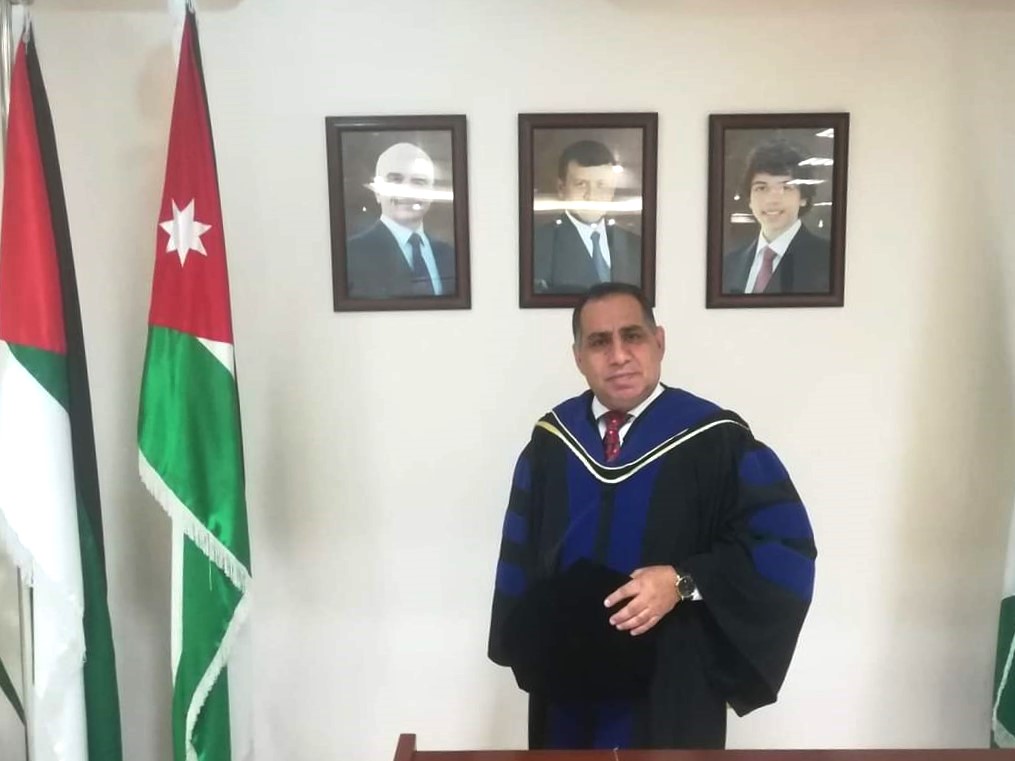Photo: Husam Mustafa Ali Al-Atum
Russia's popularity and influence in the Arab world is growing, says Husam Mustafa Ali Al-Atoum, professor of journalism at Petra University in Amman. He has wrote about it in his book named Modern Russia and the Arabs. Russia champions a multipolar world, while more and more countries are realizing this.
In an interview with Russkiy Mir, the graduate of Voronezh State University and Moscow State University outlined the topics he'll address at the 15th Russkiy Mir Assembly in early November. Additionally, he delved into discussions about attitudes toward Russians and Russia in Jordan, the impact of Russian and Soviet graduates on the country's life, and the information sources shaping his analytical articles.
Voices of the Arab world
- What are your plans for the 15th Russkiy Mir Assembly organized by the Russkiy Mir Foundation?
- I'll be addressing crucial topics such as the multipolar world, the Soviet Union's collapse, and the special operation. It's a significant and timely issue. A multipolar world is crucial, and it's evident that there's a collective need for it. I've been extensively writing about Russia and the multipolar world, with three books published in Arabic, Russian, and English on these subjects.
- What topics do you address in your books?
- Modern Russia and the Arabs was published in 2016, for which I was thanked by the king and other high-ranking people. In this book, I touch on the present day, raising a variety of issues. My articles on how Russia is moving in the world are published on the leading website of Jordan and the Arab world.
I also wrote a book called Illogical Russophobia, where I trace how the West displaces Russia and the Arab worlds. It explores how various issues, including Russia's global ascent, are often misrepresented and addressed with bias.
In my latest book, I concentrate on Russia's special operation. Advocating for Russia's stance in the Middle East and globally, my objective is to reshape people's perspectives, including influential figures. As a journalist, I have the privilege of meeting prime ministers, foreign ministers, and former leaders. Despite their preconceptions about Russia, I strive to elucidate and substantiate my viewpoint, often sharing my books as a means of conveying a nuanced understanding.
Standing together for Russia
- What is the current attitude towards Russia in Jordan and the Arab world? In your opinion, has it changed over the years?
- It seems like we're witnessing a positive shift in perceptions towards Russia. Regular, objective, and serious writing on the subject seems to be making a difference. Both ordinary and high-ranking individuals are recognizing Russia's commitment to international laws, contrary to the Western narrative. It's heartening to see this societal change.
Russians in Jordan are treated very well, everything is calm. It's heartening to know about the vibrant community of women who, having married Jordanian students, lead active and enriching lives. The existence of their own club and engagement with the cultural center adds a beautiful dimension to their experience.
The celebration of events like Victory Day and Russia Day in Jordan demonstrates the positive atmosphere and mutual respect between nations. However, the inconvenience of indirect air travel via Cairo and Turkey highlights a practical challenge that, hopefully, will see resolution in the future.
- Is the memory of Moscow's role in Jordan's development still alive in people's minds?
- Of course, we remember everything and have not forgotten anything. Your country raised many countries in the Arab East. There are 25,000 graduates of Russian and Soviet universities living in Jordan alone. You know, I notice that many Jordanians are proud of Russia, of President Vladimir Putin. Many Arabs call the Russian leader “Abu Ali,” which can be translated as a “respected man.”
- Do Jordanian graduates from Russia universities stay in touch? How has their local education shaped their professional paths?
Absolutely! The community in Amman seems lively and encouraging. The consistent gatherings, varied presentations, and the collaborative spirit among graduates forge a robust and unified front for Russia. It's remarkable to witness the far-reaching influence of Russian and Soviet education, with numerous alumni achieving noteworthy success in diverse fields, ranging from ministers and distinguished doctors to political scientists and high-ranking military officials. The involvement of the Russian Embassy and Cultural Center further lends an official backing to your events. It's truly a fantastic way to celebrate and perpetuate the collective educational journey!
The education acquired in Russia and the USSR has undoubtedly propelled many to remarkable success. Within our community, you'll find ministers, esteemed doctors, political scientists, and high-ranking military personnel who could make it thanks to their educational foundation. It's a testament to the enduring impact of Russian and Soviet education.
- How did you get to study in the Soviet Union?
- Growing up in Jordan, I dreamt of studying in Russia despite limited means. With embassy support, I attended Voronezh State University and Moscow State University for graduate studies. Russia is my second home now, and my wife, a Russian doctor, teaches Russian at a Jordanian university and leads a language center.
Russia in the Arab media
- What kind of information about Russia circulates in Jordan for last 1,5 years?
- We have a state and private press. The state press broadcasts Western disinformation. But the private ones write in a more reliable and unbiased manner, and our graduates take part in this. For example, my articles are published and people read them. There are also people in Jordan who did not study in Russia, but are in favor of it.
- Where do you get information on Russia’s life and the special military operation?
- My knowledge of the Russian language helps me a lot. I read various sources, including Arabic, and compare them. It is important for me to get information from different sources. I have about ten Russian TV channels connected at home, and we watch them more often than Jordanian ones.








